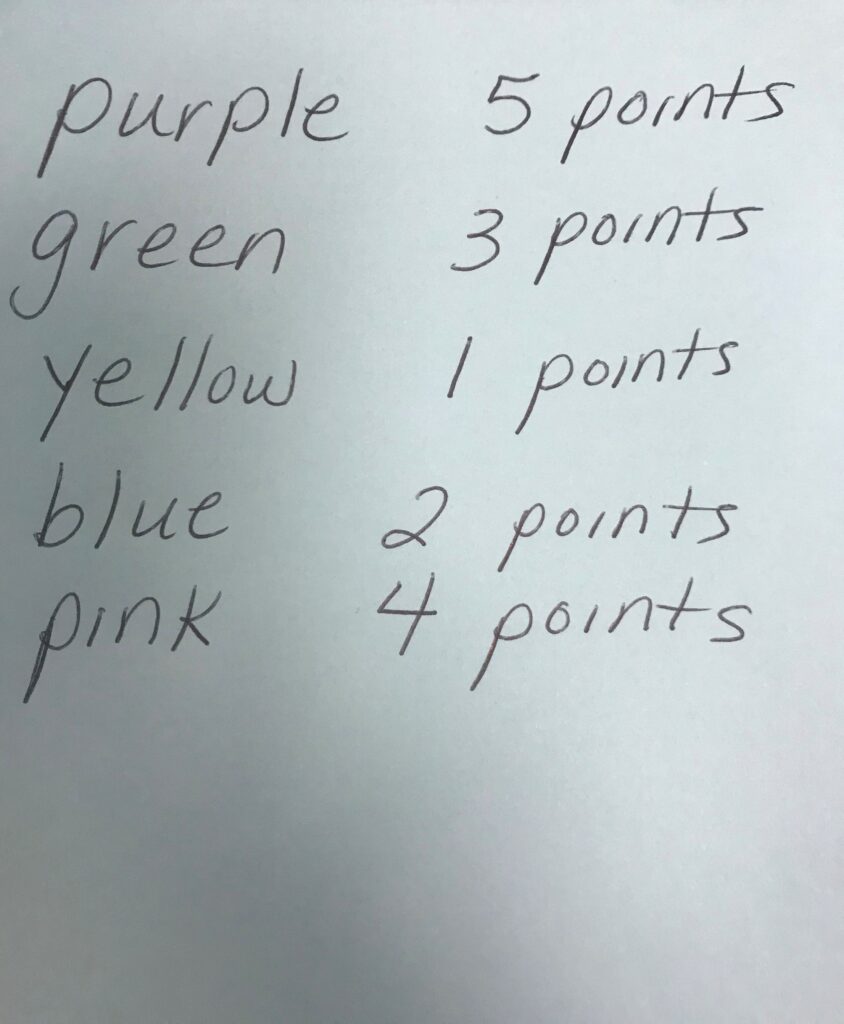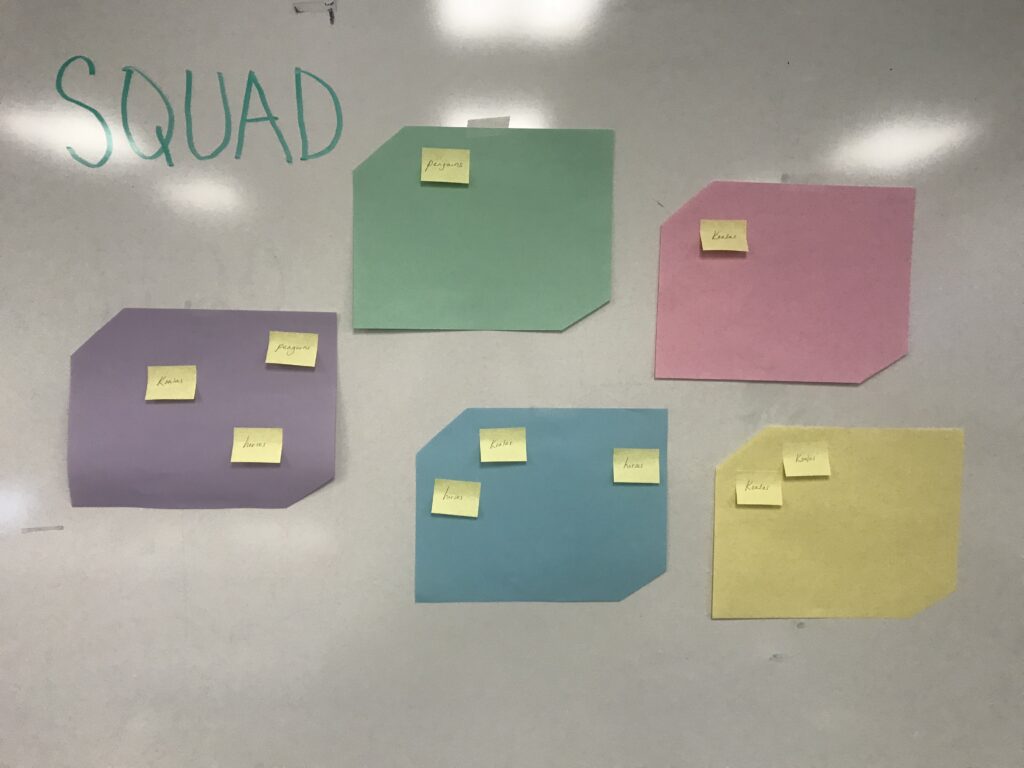I have been playing a very fun math review game called “Squad” with my students. It is a game of strategy, chance, patience, and accountability. The playing field is level because in the end anyone can win.
Try it with your students and you will be delighted at the support your students give each other.
Click here to sign up to get the rules in a convenient PDF version.
Definition of a squad:
A small group of people solving a particular task.
Object of this math review game
To earn the most points for your squad.
Time needed
To be determined by the teacher before the game.
Materials Needed
Task cards
Answer sheet
Small post-it notes or small pieces of paper
Tape
Five pieces of colored paper separately taped to the wall
Paper and pencils for students or whiteboards
Teacher and student prep

Important: BEFORE the game, on a small piece of paper that you will show the class at the end of the game, assign a number to each colored piece of paper from 1 through 5. For example, the blue paper is worth 2 points, the green paper is worth 3 points, etc… DO NOT let the students see these numbers. They will be revealed at the end of the game.

Next, put students in groups of 3-4. Each group thinks of a team name.
Then give each group ONE task card.
Finally, every student gets either a whiteboard and marker or a piece of paper and pencil.
How to Play this Math Review Game
All students answer the card and each one makes sure they understand how to answer the problem. The students must communicate with each other to assure that every student in the group understands the problem and how to get the answer. If all students in a group don’t understand, they risk not being able to earn points.
When students are ready to check the answer on their task card, they raise their hands and the teacher comes around and asks one person on the team a question about the problem they are working on. For example, “Joe, how do you solve the problem?” or “Laura, what is the rule for this part?” or “Jose, how did you get from this step to the next step.”
This is also the time when the teacher differentiates questions for individual students.
Holding a student accountable
When the teacher is asking the question to a particular student, the other students MAY NOT help or answer. The point of holding a student accountable is to make sure that the student answers your question so that you can check for understanding.
Additionally, if another student answers, ask them kindly to not help the student at this time, then ask a different question to the original person.
If a student cannot answer the question, the teacher gently tells the students of that group that they need to again discuss with each other how to get the answer and raise their hands when they are ready. Tell them they are working as a team and that they need to help each other in order for everyone to learn the material.
Furthermore, when the teacher comes back to the group, he/she may ask a question to the same group member or a different group member. It may be the same question or a different one. (Make sure you go back to the group so they can redeem themselves!)

When a student gets the problem correct
If the student is able to answer the question, put a small post-it in the center of the table and tell someone in the group to put their team name on it.
Then, one of the students goes up to where the 5 colored papers are and tapes it on any one of them. Throughout the game the students can decide to put their post-its on one colored paper or different ones. They have no idea the point value of each of the colored pieces of paper so this game is ultimately very equitable. The team gets another task card and solves it in the same manner.

The teacher then goes to a different group, asks a student a question about their problem, makes sure no one else answers and then either tells them to keep practicing or hands them a post-it.
When the game is almost done
After a certain amount of time, the teacher stops the math review game and writes the points on each of the post-it notes that are taped to the colored paper. (Remember, these points were decided before the game by the teacher.) Then one member of each team comes up, collects all their post-it notes, and adds their score.
The team with the highest score wins.
Fun Suggestion:
Make the game themed. For example on Thanksgiving, make colored turkeys instead of colored pieces of paper. Then make feathers for the students to tape on the turkeys instead of post-its.
Here are some Algebra resources to use for “The Amazing Game of Squad”:
Mini Task Cards about Quadratics
Mini Task Cards about Linear Functions
Here are some middle school resources to use:
Converting Fractions to Decimals to Percents
Multiplying and Dividing Fraction Word Problems
or Check out my store for all the resources!
Click here to sign up to get the rules in a convenient PDF version.
Click here to learn about another fun review called “The Grid Game”.
What kinds of review games do you play with your students? Let me know in the comments below.





